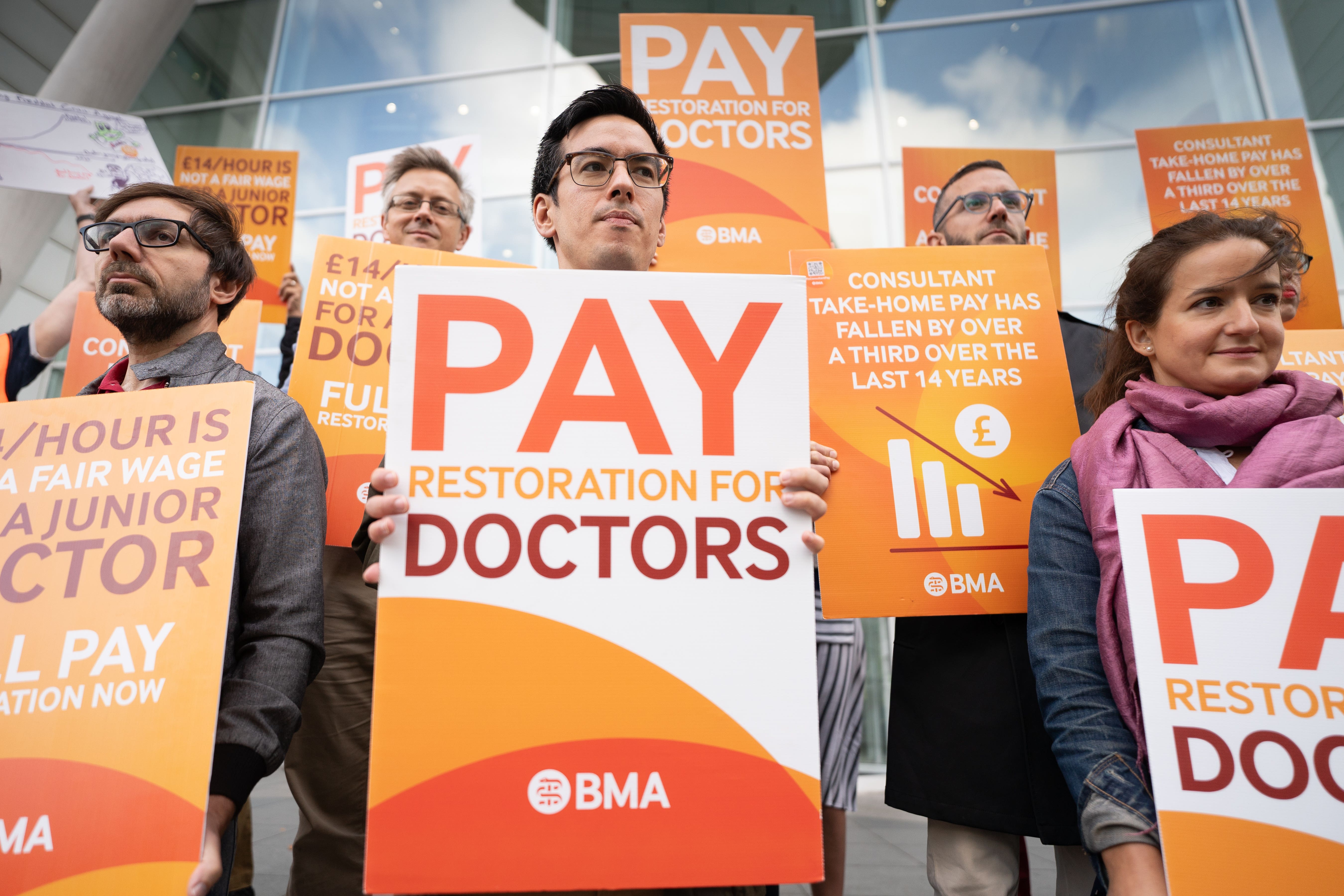NHS appointments cancelled during strike action to ‘surpass one million’
Junior doctors expected to continue striking until the government makes a ‘credible offer’

The number of NHS appointments cancelled because of strikes in England is expected to surpass one million, with health bosses warning of the “distress” caused to patients.
NHS Providers, which represents health managers, estimates the first-ever double strike action by junior doctors and consultants last week means the country will reach the “damaging and demoralising” new milestone in figures set to be announced later on Monday.
Industrial action began in December 2022, with the official number of inpatient and outpatient appointments and operations cancelled currently standing at 885,154, according to NHS England.
If community and mental health figures are included, the total is more than 940,000 – although this will not reflect the overall number of actual cancellations, due to some duplication of data.
Saffron Cordery, deputy chief executive of NHS Providers, said: “The immediate concern has to be with patients – more than a million and counting – whose care or treatment has been delayed.
“Trust leaders understand only too well the distress this can bring them and their loved ones. Every effort has been made to mitigate the impact of successive strikes but the rising disruption figures tell only a small part of the story.
“With the official tally of figures capturing those procedures and appointments that we know are rescheduled, thousands more patients will be affected because trusts are simply not booking in care for strike days known well in advance.
“Behind every delay there is a real and human cost. How many more reasons are needed for an end to the dispute?”
Ms Cordery warned as winter approaches and resources are “severely stretched” strikes will become a “wholly unwelcome” burden on the health service.
Junior doctors, who want a 35 per cent pay rise, have suggested they will continue striking until the government makes a “credible offer” that the British Medical Association (BMA) can present to its members.
Consultants want an above-inflation pay award of 11 per cent.
Professor Phil Banfield, council chairman of the BMA, said: “The last thing we ever want is to cause further disruption to the patients in our care and I am extremely sorry that it has come to this. But these strikes are about the long-term sustainability of the NHS and ensuring there are trained doctors around to care for all patients in the future.
“It is doctors, with their skills and expertise, who have continued treating patients despite years of relative pay erosion, a pandemic that was a brutal experience for doctors, nurses and other carers – as well as so many families – and the challenges of dealing with the worst waiting lists in the NHS’s history which have impacted patient care across the last decade and more.
“It is the government that chooses not to acknowledge the cost and value of medical care – it is in their hands to safeguard the retention and recruitment of doctors in the NHS for years to come.
“The longer the government buries its head in the sand, the more both strikes and waiting lists cost the public purse.
“It’s a no-brainer to invest in the future of the NHS workforce rather than waste further money refusing to pitch a credible pay offer.
“Our door has been open for over a year and we hope for the sake of our patients that the government eventually listens.”
The BBC used Freedom of Information laws to reveal the NHS is having to pay millions of pounds to cover for striking doctors.
Further joint strikes by consultants and junior doctors are planned for October 2, 3 and 4.
A Department of Health and Social Care spokesperson said: “The co-ordinated action next week will create further unacceptable disruption for patients and fellow NHS staff.
“We accepted the independent pay review body’s recommendations in full, meaning doctors who started their hospital training this year are receiving a 10.3 per cent pay increase, with the average junior doctor getting 8.8 per cent. Consultants are receiving a 6 per cent pay rise and are already in the top 2% of earners in the country.
“This pay award is final, and the majority of unions representing over one million other NHS workers have accepted our offer and called off further strike action.
“The Health and Social Care Secretary is clear his door is open to discuss non-pay issues if the BMA call an end to this damaging disruption.”


